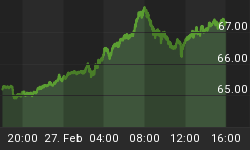Ayn Rand's novel, Atlas Shrugged, describes a world that was on a slow but steady path toward ever more central planning by meddling bureaucrats interfering with the entrepreneurial class who relied on one another for their production of output. A character in the novel, John Galt, tucks himself away in a secret hideaway and convinces fellow entrepreneurs to join him in dropping out of society.
The world today is not all that different from the one Galt abandoned in Atlas Shrugged. Let's assume the statist utopia being created today ended in failure and Galt reentered the general population. What stocks would he swap some of his gold for amidst the ashes left on the corner of Broad and Wall? A summary from our previous blog narrowed down a stock selection criteria that is consistent with the Galt profile gleaned from the Ayn Rand novel. Galt would only be interested in smaller companies unhindered by the previous shenanigans pulled by the masterminds on Wall Street. His stocks must all pay a dividend, offsetting some of the damage of losing purchasing power from continuous debasement of a fiat currency. The price paid for a stock must also trade below liquidation value using Benjamin Graham's definition of current-asset value.
The Galt buying criterion is summarized below.
Galt Stock Portfolio Criteria:
- Small-cap stocks trading with a market cap in the range of $25 million to $250 million in 2002 dollars.
- Paid an annual dividend over the previous 12-month period.
- Purchased at a price point below 75% of Benjamin Graham's liquidation-value criterion.
We showed in our last blog that the Galt criterion produced mainly winning trades, but what's the point if over the long study period only a handful of stocks can be found meeting this stringent buying criteria? After all, dividend-paying stocks that have been neglected by Wall Street to the point that they've dropped in price below liquidation value seem few and far between. If there aren't enough of Galt's favorite stocks to buy, why bother doing the work if it can't outperform a fully-invested index fund over the long haul.
Galt strikes me as the type of guy who couldn't care less whether his portfolio outperforms an index fund. Even if the retail public laughed in his face regarding his portfolio performance, I doubt it would bother him that much. Why care about the opinion of a group of suckers that lets their elected officials debase their hard-earned money and keep raising the credit card limit on the debt they will have to repay? Let's play along anyway and analyze the long-term performance of the Galt stock-investment criteria. Given the limited number of stocks that met the stringent Galt criteria, a few additional rules need to be laid down before analyzing his long-term portfolio performance.
Additional Galt Stock Portfolio Criteria:
- No more than 10% invested in any one stock.
- If few stocks met the Galt selection criteria, the balance remained in Treasury Bills.
Including those additional constraints, the performance comparison with several index funds is listed below:
*John Galt Portfolio includes only dividend-paying stocks trading below 75% of Benjamin Graham's current-asset value criterion. Stocks in John Galt Portfolio must have a market capitalization between $25 million and $250 million in 2002 dollars. All compounded return averages are from 1952-2009.
Over the long study period, the Galt portfolio outperformed both a small-cap and a large-cap index fund by around 3% on an annual basis. This is true even though in a number of years, Galt was forced to sit on the sidelines in low-interest-bearing Treasury Bills while the rest of the herd enjoyed stellar returns on their fully invested index fund.
We all feel compelled to join the collective conscious and buy stocks when everyone else is enjoying the thrill of a late-stage bull market advance. It takes a disciplined, independent thinker such as Galt to resist the urge to join in. The results are clear. Even though sitting on the sidelines at times in low-interest-bearing Treasury Bills might look foolish, it doesn't result in a sacrifice in terms of long-term performance.
As of this writing, there are few stocks meeting the Galt selection criteria. Based on sound logic and not some form of wishful thinking, I like to think Ayn Rand would be pleased to see how well Galt's portfolio performed; even if that meant dropping out on occasion, sitting mainly in cash when the crony capitalists of Wall Street are running the show as they are today. I don't think loyal followers of her writings gathered at the upcoming Atlas Shrugged Revolution dinner would have it any other way.[¹]
[¹] Atlas Shrugged Revolution dinner will be held on September 23rd at the St. Regis Hotel in New York City at 6:00pm.
















